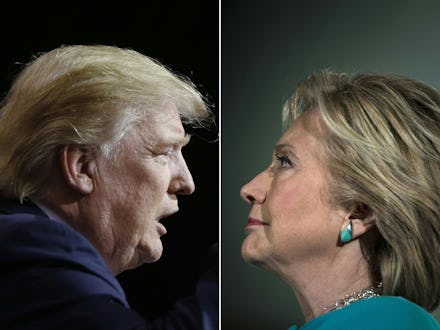What was the final popular vote count for Hillary Clinton and Donald Trump?

Donald Trump won the presidency with a large Electoral College margin over Democratic opponent Hillary Clinton. Trump leads Clinton with 290 votes to 232, and he may break 300 if he also wins Michigan, which is still too tight of a race to call.
Clinton conceded the race on the morning of Nov. 9, telling supporters she was sorry that she didn't win. "I know how disappointed you feel, because I feel it too," she added.
But Clinton didn't lose the popular vote.
More Americans voted for Clinton than they did for Trump. The winner of the popular vote has failed to win the Electoral College for just the fifth time in American history.
Clinton won 62,825,754 votes as of this writing (believe it or not, ballots are still being counted). Trump, to compare, won around 61,486,735 votes, a difference that favors the former secretary of state by more than 1.3 million votes. Her vote totals are expected to climb as more numbers come in.
How is this possible?
The Electoral College awards smaller states an advantage. Each state receives a number of electors equal to the number of representatives and senators, with each being guaranteed at least three (Washington, D.C., is also given three Electoral College votes). The candidate who wins each state wins all of its electors (with the exception of Maine and Nebraska).
But because a less populated state like Wyoming is guaranteed at least three electors, its citizens' votes carry more weight than in a state like California, which has 55 electors.
Representatives are distributed every ten years after the U.S. Census is conducted. California had a population of around 37.2 million people in 2010. Each of its electors accounts for about 676,000 residents. Wyoming, on the other hand, had just 563,626 residents as of 2010, meaning each elector is worth over 187,000 residents.
The smaller the number of residents-per-elector, the more powerful that Electoral Vote becomes.
Defenders of the Electoral College tout it because they claim that candidates would just stay in the big cities under a popular voting scheme, ignoring much of the rest of the country. And others argue it would do away with federalism itself.
Yet critics maintain it's time for the Electoral College to go. Smaller states and rural areas are already ignored, and defenders of the current system are misguided in worrying about candidates "camping out" in big cities to win more votes under a popular vote system. Critics of the Electoral College also contend that disregarding the will of the people in choosing the president is an affront to democracy itself.
Plans to end the Electoral College won't be successful anytime soon, however: That would require a Constitutional amendment, a feat that is very difficult to accomplish. Still, Sen. Barbara Boxer of California submitted a proposal for its elimination this week. "The Electoral College is an outdated, undemocratic system that does not reflect our modern society, and it needs to change immediately," she said in a statement.
Most Americans agree with Sen. Boxer — polls demonstrate overwhelming support for changing to a system that respects the popular vote. And Trump agreed as late as Nov. 13 during an interview with 60 Minutes, though he has since changed his mind.
"The Electoral College is actually genius in that it brings all states, including the smaller ones, into play," he tweeted on Nov. 15. "Campaigning is much different!"